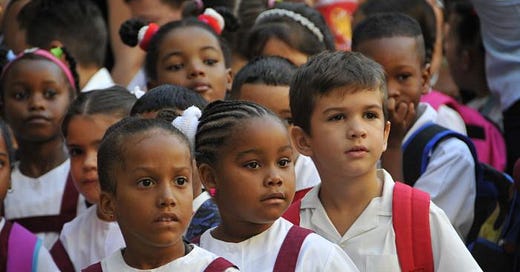In an anthology on political culture published by the University of Havana in 2023, Carlos Cabrera Rodríguez describes the political culture of a nation as the concentrated expression of the entire set of actions, objectives, and functions of the political system, serving as a fundamental link in the political process.
§
Cuban political culture
I would maintain that the Cuban political culture is formed by the reasoning and ideology tied to a revolutionary political practice. And I see four dimensions of the Cuban political culture.
First, there is the political process of people’s democracy, consisting of direct and indirect elections that are central to its democratic character; neighborhood nomination assemblies that ground the political process in local spaces; people’s assemblies with legal political authority at national and municipal levels; mass organizations that strengthen the particip…



